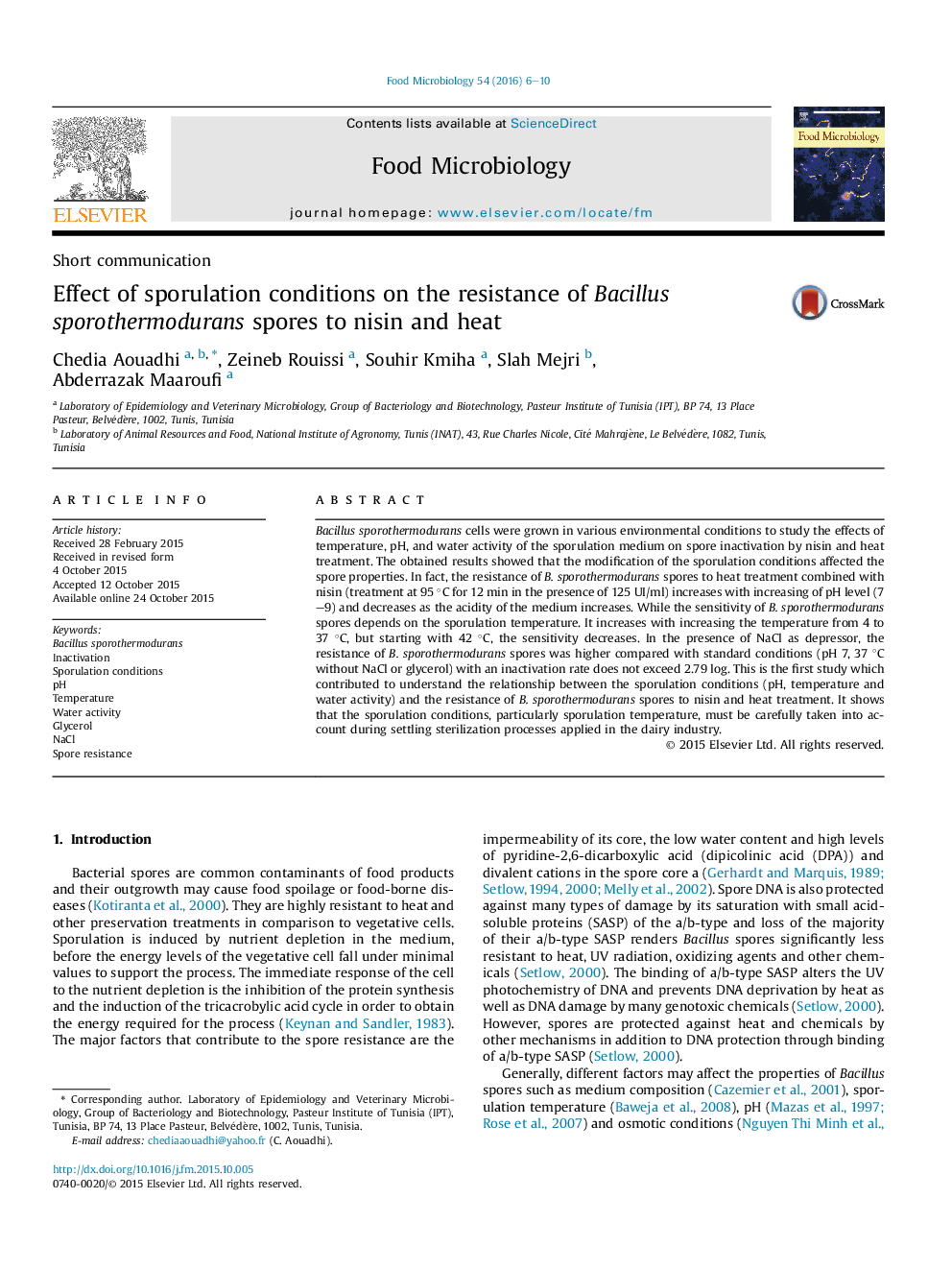| Article ID | Journal | Published Year | Pages | File Type |
|---|---|---|---|---|
| 4362623 | Food Microbiology | 2016 | 5 Pages |
•The relationship between the sporulation conditions and the resistance of Bacillus sporothermodurans spores was studied.•The sporulation conditions (temperature, pH and water activity) affected the spore properties.•The spore sensitivity increases with increasing of the temperature from 4 °C to 37 °C.•Spore resistance decreases as the acidity of the medium increases.•The presence of NaCl in the medium increases the spore resistance to nisin and temperature treatment.
Bacillus sporothermodurans cells were grown in various environmental conditions to study the effects of temperature, pH, and water activity of the sporulation medium on spore inactivation by nisin and heat treatment. The obtained results showed that the modification of the sporulation conditions affected the spore properties. In fact, the resistance of B. sporothermodurans spores to heat treatment combined with nisin (treatment at 95 °C for 12 min in the presence of 125 UI/ml) increases with increasing of pH level (7–9) and decreases as the acidity of the medium increases. While the sensitivity of B. sporothermodurans spores depends on the sporulation temperature. It increases with increasing the temperature from 4 to 37 °C, but starting with 42 °C, the sensitivity decreases. In the presence of NaCl as depressor, the resistance of B. sporothermodurans spores was higher compared with standard conditions (pH 7, 37 °C without NaCl or glycerol) with an inactivation rate does not exceed 2.79 log. This is the first study which contributed to understand the relationship between the sporulation conditions (pH, temperature and water activity) and the resistance of B. sporothermodurans spores to nisin and heat treatment. It shows that the sporulation conditions, particularly sporulation temperature, must be carefully taken into account during settling sterilization processes applied in the dairy industry.
